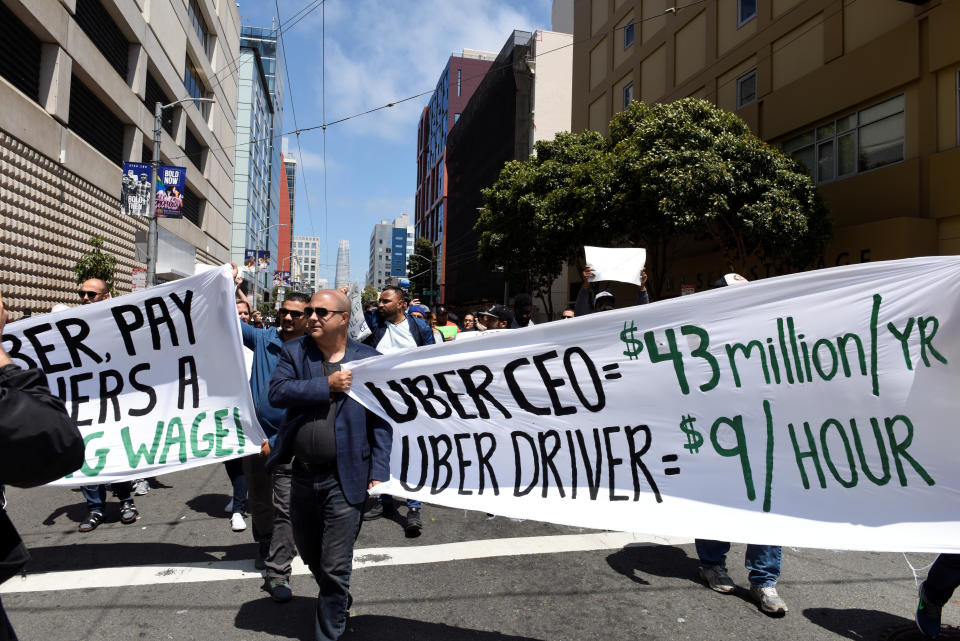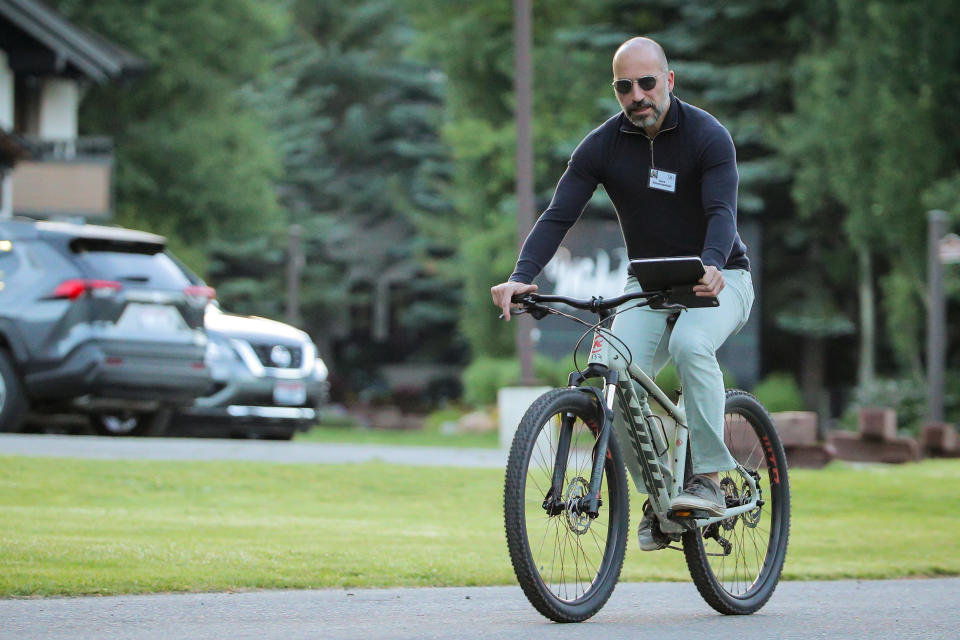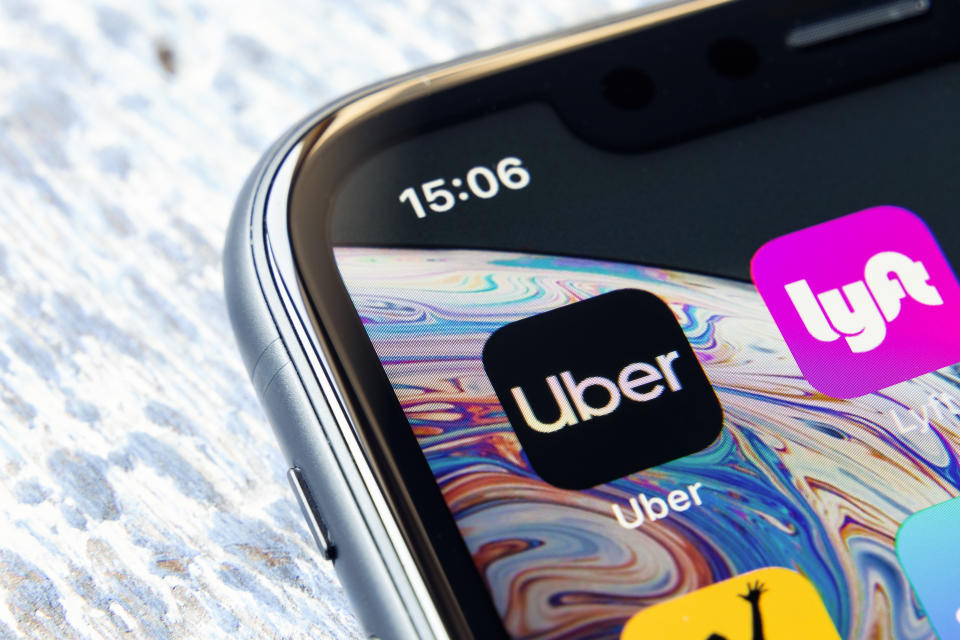Uber and Lyft face 2 big threats to their business model after new California law
An Uber (UBER) driver in California is wasting no time seizing upon a new law passed by the state legislature Wednesday that could reclassify ride-hailing drivers from independent contractors to employees.
The law poses two big threats to the current business models of ride-hailing companies like Uber and Lyft (LYFT). One is a three-pronged requirement, called an “ABC test,” stating the following:
“A person providing labor or services for remuneration shall be considered an employee rather than an independent contractor unless the hiring entity demonstrates that the person is free from the control and direction of the hiring entity in connection with the performance of the work, the person performs work that is outside the usual course of the hiring entity’s business, and the person is customarily engaged in an independently established trade, occupation or business.”
The other is an enforcement mechanism that gives the state Attorney General power to sue over claims that drivers are misclassified as independent contractors.

“If the Attorney General is aggressively pursuing these pieces and obtaining these orders requiring reclassification, that really could, in some instances, impact the business model,” said Gena Usenheimer, a partner in the Labor & Employment department of Seyfarth Shaw.
Lawsuit references California’s recently passed law
In a proposed federal class action lawsuit filed in the Northern District of California, Angela McRay argues she and other California drivers are owed reimbursement of job-related expenses, unpaid minimum, and overtime wages. McRay’s claims rely on a California Supreme Court test for determining whether or not a worker must be classified as an employee, the basis for a newly passed state law, Assembly Bill 5. McRay is asking the court for an injunction that would order Uber to classify its drivers as employees.
The filing comes as the new bill, Assembly Bill 5, awaits Governor Gavin Newsom’s signature, and as Uber and a coalition of companies, including Lyft, DoorDash, and Postmates, try to create carve-outs that would spare the companies the version of the bill, as it stands.

“Indeed, the California legislature has now passed a statute known as Assembly Bill 5, which codifies the 2018 California Supreme Court decision…,” the complaint states, “under which an alleged employer cannot justify classifying workers as independent contractors who perform services within its usual course of business.”
A decision Wednesday from the Third Circuit Court of Appeals could also make enforcing mandatory arbitration agreements increasingly difficult. The court opened the door to allow an Uber driver to argue that his work is considered engagement in interstate commerce, which in turn, would permit him to bring a claim in court to argue that the company had misclassified him as an independent contractor.
‘Drivers will not automatically be reclassified’
For Uber’s part, the company says, despite the law, it plans to continue treating drivers as independent contractors, and may have success challenging the position that drivers are part of the usual course of its business. Uber’s chief legal officer Tony West said during a conference call with reporters before the lawsuit was filed on Wednesday that Uber had been successful in arguing under the ABC test in the past .
“Because we continue to believe that drivers are properly classified as independent, and because we’ll continue to be responsive to what the vast majority of drivers tell us they want most — flexibility — drivers will not automatically be reclassified as employees even after January of next year,” West said.

Still, Usenheimer, the lawyer who spoke to Yahoo Finance, said it could be difficult for employers to demonstrate the “B” part of the ABC test — that drivers perform work outside of the company’s usual course of business.
“I think prong ‘B’ of the ABC test is going to be the most problematic for most hiring entities in California, and the hardest for them to meet,” Usenheimer said. “It is the most unusual, I think, part of the California version of this ABC test.” Most states, she explained, have a broader interpretation of prong “B” that includes an alternative avenue for entities to classify workers as independent contractors when their work is performed outside the employer’s place of business.
“These rideshare platforms, they were able to easily meet that prong,” she said because drivers’ work is not performed in a specific place.
West did not address the differences between California’s law and those of other jurisdictions, though emphasized what could be a sign of the company’s arguments to come if it is not offered relief from the current version of the California bill.
“Just because the test is hard doesn’t mean that we will not be able to pass it,” West said. “In fact, several previous rulings have found that drivers’ work is outside the usual course of Uber’s business which is serving as a technology platform for several different types of digital marketplaces.”
Alexis Keenan is a reporter for Yahoo Finance. Follow on Twitter @alexiskweed.
Read the latest financial and business news from Yahoo Finance
Follow Yahoo Finance on Twitter, Facebook, Instagram, Flipboard, SmartNews, LinkedIn, YouTube, and reddit.

